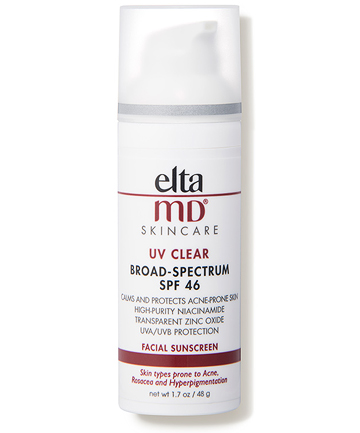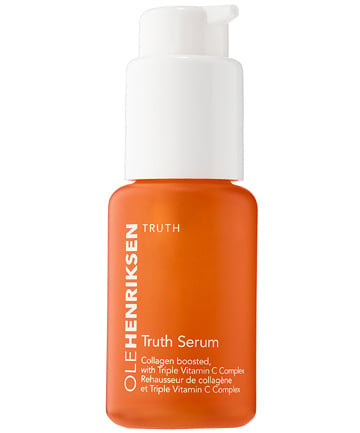Have you noticed dark marks on your skin? They're not going away and they're starting to worry you? Well, it's probably hyperpigmentation and, thankfully, there are lots of ways to treat it.
But first, what exactly is hyperpigmentation? Well, according to Dr. Michele Farber of Schweiger Dermatology Group in New York, it basically comes down to "increased pigment in the top layer of the epidermis from extra activity of melanocytes or pigment cells, or increased pigment in the dermis from melanin or pigment drop out deeper into the skin." Which, in layman's terms, means that the top layer of your skin is producing more pigment than normal due to sun exposure, hormonal changes or irritation to the skin.
Farber says anyone can develop these dark marks, but that certain people are predisposed to it. Women are generally more likely to have them, and also darker skin takes longer to heal from these spots. "Pigment changes can occur at any age, although acquired pigment changes become more prominent with age. For example, sun spots often occur later in life while other pigment changes can be inherited or occur after rashes, and are often seen at younger ages," she says.
So what's a person to do? Keep reading to discover Farber's tips for treating hyperpigmentation, as well as some of her favorite brightening skin care products for the job.
Image via Imaxtree
"This depends on the type of hyperpigmentation. For sun spots, they're acquired from — you guessed — cumulative sun exposure," says Farber. "Treatment includes sun avoidance, strict SPF, retinoids, and in office treatments like peels or lasers. Melasma often has a hormonal basis but will always be worse from sun. Pregnancy and contraceptives can flare melasma. Stopping OCPs, strict sunscreen use, retinoids, and judicious use of exfoliating acids like glycolic or kojic acid can help lighten, as well as in office treatments like peels."
Farber stresses that you need to protect your skin from the sun and suggests a good mineral-based sunscreen, or going to see your dermatologist and having in office procedures like peels or laser treatments to help with deeper pigmentation.
So which products can you use at home before you consider going to have any treatments done?
Image via Imaxtree
As Farber puts it, "Your best friend for pigment changes is sunscreen. No matter the cause, sun exposure will exacerbate the contrast. I like mineral based sunscreens like EltaMD UV Clear."
"Retinol and retinoids like SkinBetter Overnight AlphaRet are often appropriate to even out skin tone, but discuss a regimen and in-office procedures with your dermatologist," says Farber.
Using an antioxidant-rich serum daily can also help boost and brighten your skin's appearance and help get rid of those marks.









